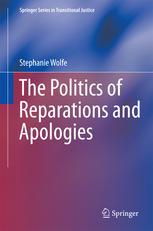

Most ebook files are in PDF format, so you can easily read them using various software such as Foxit Reader or directly on the Google Chrome browser.
Some ebook files are released by publishers in other formats such as .awz, .mobi, .epub, .fb2, etc. You may need to install specific software to read these formats on mobile/PC, such as Calibre.
Please read the tutorial at this link: https://ebookbell.com/faq
We offer FREE conversion to the popular formats you request; however, this may take some time. Therefore, right after payment, please email us, and we will try to provide the service as quickly as possible.
For some exceptional file formats or broken links (if any), please refrain from opening any disputes. Instead, email us first, and we will try to assist within a maximum of 6 hours.
EbookBell Team

5.0
80 reviews
The Politics of Reparations and Apologies examines the evolution and dynamics of reparation politics and justice. The volume introduces the key concepts, theories, and terms associated with social movements and in particular, the redress and reparation movement (RRM). Drawing from RRMs that have their foundation in World War II--the German genocides, the United States internments, and the Japanese “comfort women” system-- the volume explores each case study’s relative success or failure in achieving its goals and argues that there are overarching trends that can explain success and failure more generally in the RRM movement. Using the backdrop of international criminal law and normative concepts of reparations, the volume establishes and analyzes the roles of reparations and apologies in obtaining transitional justice.
In each case study, there is a detailed rundown of the political actions that were attempted to obtain redress and reparation for the victims, of how successful the attempts were, and of the crucial factors which influenced the relative success or failure. Crucially, the volume offers a comparative framework of the actions that contribute to a successful outcome for transitional justice. With the increasing normative expectation of justice in post-conflict situations, this volume is a valuable resource for researchers in international affairs, human rights, political science, and conflict studies.